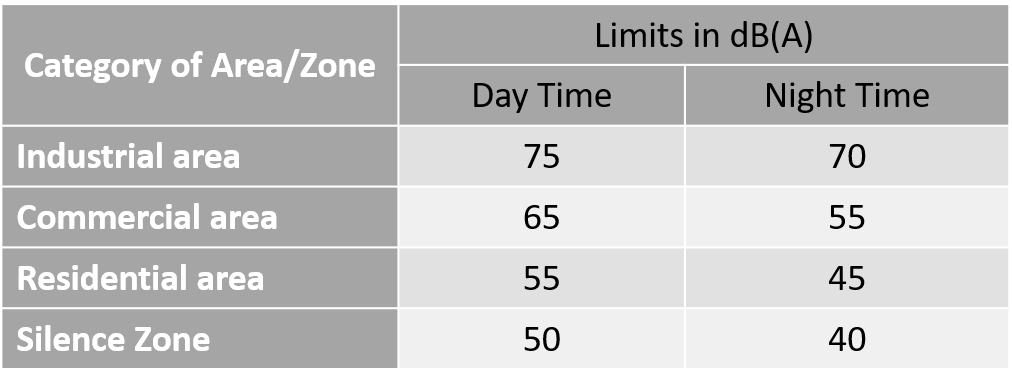QCM helps to create policy through citizen participation. Data collection and comparison with set norms and standards evaluate the situation of Quality of Life. On the other hand, it also helps to assess the existing policies, norms
The Ministry of Environment and Forests, and Climate Change (MoEFCC) is the nodal agency in the administrative structure of the Central Government for the planning, promotion, co-ordination and overseeing the implementation of Indian environmental and forestry policies and programmes.
The MoEFCC has provided regulatory measures for the control of noise pollution by way of the Noise Pollution (Regulation and Control) Rules, 2000. The Noise Pollution (Regulation and Control) Rules, 2000 stipulate that;
- There are to be noise standards in different zones or areas (industrial or commercial or residential).
- There are to be ambient air quality standards in respect of noise for the different areas.
- Areas that come within a 100 m buffer around
- Hospitals
- Educational institutions
- Courts of law
- Religious places
- Ambient Air Quality Standards in respect to noise as below

The QCM framework helps uphold urban quality of life by helping citizens monitor and support Government rules and regulations in multiple ways viz.
1. By mapping the various silence areas and zones enumerated in the Noise Pollution (Regulation and Control) rules, 2000 below.
Interact with the map above and you will observe that almost half of Ward (Prabhag) 15 (2017 election) in Pune city is a Silence Zone as per the Noise Pollution (Regulation and Control) Rules, 2000. Is the law being followed? The silence zone must no exceed 50dB in the day and 40dB at night.
2. The QCM framework provides training and access to tools to collect ambient noise data. To register please download
3. The data collected through the QCM framework will be mapped and compared to standards for identifying stresses and infringements. Look out for the incidents you find in your neighborhood to upload!
4. The QCM framework helps to report the stresses or
5. The QCM framework, through the above process the participatory,
